Redshift Kitchen Sink handlebars review - built for comfort
Flared bars for gravel and endurance rides where comfort, not weight, is a priority
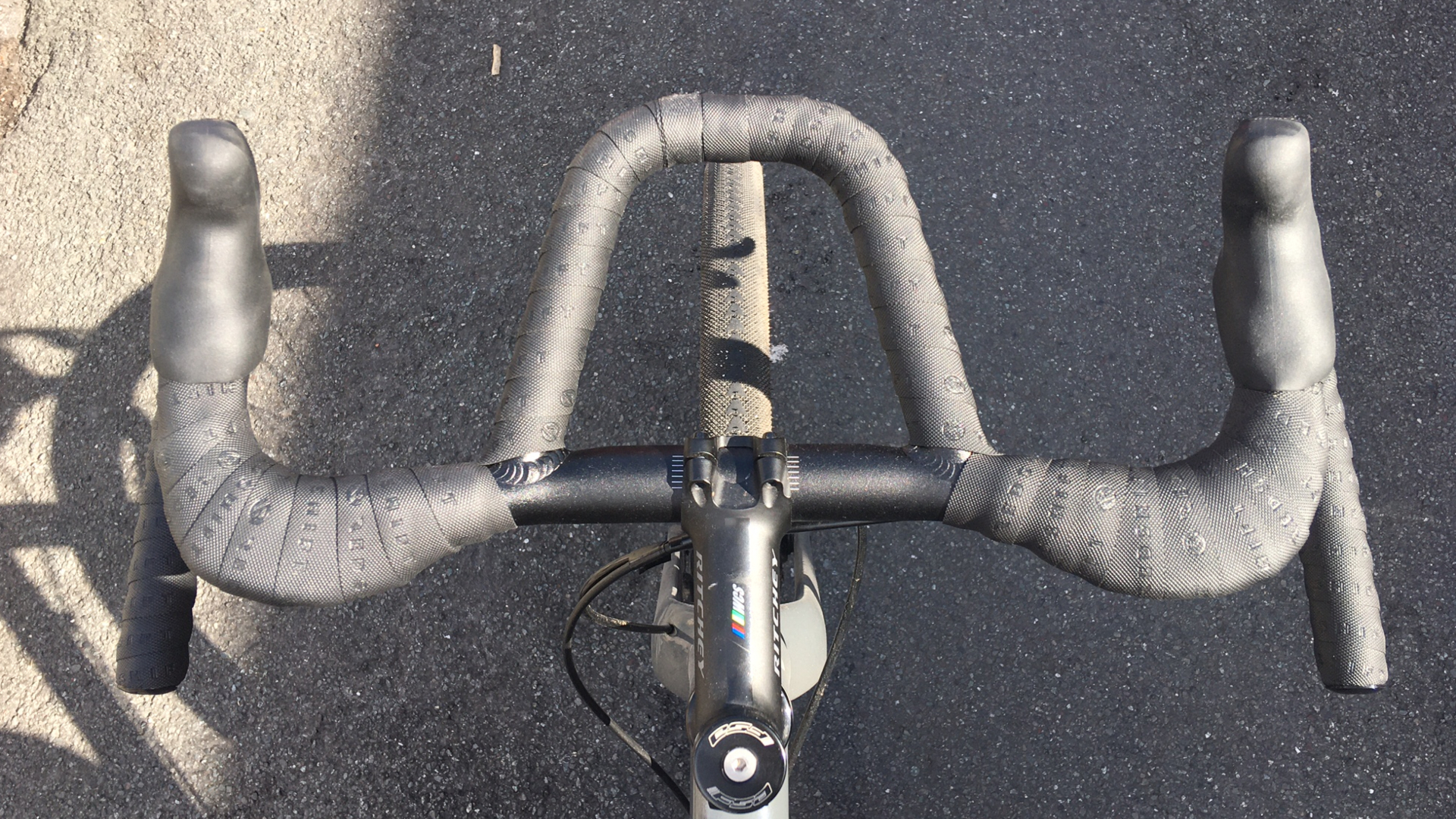
The Kitchen Sink bars performed admirably. They’re clearly a considered design with the majority of hand positions feeling entirely natural. Some bars take a while to get used to. They didn’t. However, the endurance loop was unnecessary for the shorter gravel rides I tend to do and I was left unconvinced by its purpose. That said, it may prove handy during long or multi-day rides for some. As for the bar's hefty weight, it wasn’t particularly noticeable out on the roads and trails, with the comfort the bars delivered taking precedence.
-
+
Shape of bars offer a variety of comfortable hand positions
-
+
Additional Cruise Control grips further aid comfort
-
+
Degree of flare well-suited to off-road riding
-
-
Heavy, weighing over 450 grams
-
-
Pretty expensive for aluminium at £129.99/US$139.99
-
-
Endurance loop won't suit everyone
You can trust Cycling Weekly.
Redshift Sports is a small US brand that has a built a reputation for designing innovative components. Founded in 2013 by a team of mechanical engineers who are also cyclists, it’s created a number of interesting products to date including the ShockStop Stem and Seatpost.
The Kitchen Sink handlebars continue its trend for innovation. Designed for gravel and adventure riding the bars have a number of interesting features as well as a couple of compatible accessories that make them stand apart from many other handlebars for gravel bikes.
Redshift Kitchen Sink handlebars - the construction
As the name would suggest, the Kitchen Sink handlebars are designed to offer the rider plenty of options when it comes to hand positions. They come in two styles, one of which features an ‘endurance’ loop, and that’s what we’re reviewing here.
The Kitchen Sink bars are offered in a range of widths from 44cm (reviewed here) up to 53cm. Made from 6061 T6 aluminium, they feature a 20cm rise with a 7 degree backsweep alongside a drop flare of 25 degrees. The bars have a shallow 110cm drop combined with a short 70cm reach. All these numbers point towards a product designed to offer bags of comfort and control over varied terrain.
The endurance loop, in essence, provides an additional ‘aero’ position and is presumably aimed at riders who would normally fit a pair of tri extensions to their bars for long endurance rides or events. The loop also provides some additional space for mounting accessories and storing gear, again of obvious appeal for ultra-endurance events or multi-day rides. Naturally, the downside to the loop is the extra weight. Our 44cm bars tip the scales at 480 grams.
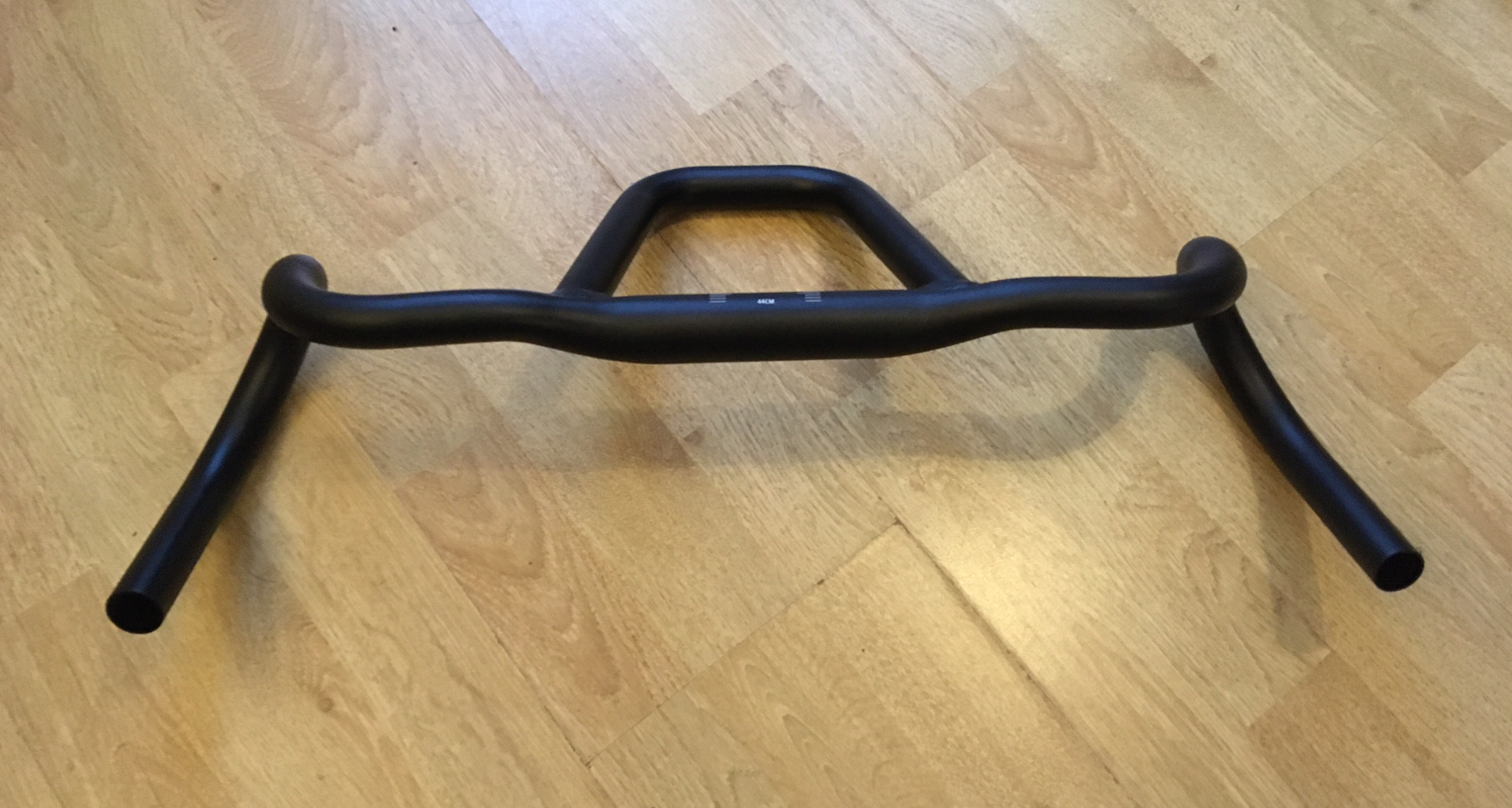
And there’s more. The Kitchen Sink Bars are also designed to be paired with Redshift’s Cruise Control Grip System. These are ergonomic grips that are mounted to the tops and the drops of the bars to help alleviate numb hands, absorb a bit of road buzz and generally offer added comfort during long rides.
I chose to fit the Cruise Control top grips. I’m a sucker for a larger ergonomic platform on any handlebar and didn’t need any convincing that these would help to make the Kitchen Sink bars more comfortable.
The latest race content, interviews, features, reviews and expert buying guides, direct to your inbox!
How easy they fit will probably depend on whether you enjoy tinkering with your bike. I’d say they are pretty straightforward to apply but it's a fairly time consuming process to get it spot on.
The application of the grips is helped considerably by Redshift’s instructions, which also includes an online video. In fact, I was impressed with all of the packaging and instructions that accompany the bars and grips. Well designed, thoughtful and clear, I couldn’t help but hope that this degree of care and attention had also been applied to the design of the bars themselves.
I finished the bars off by wrapping them with Redshift’s Really Long Bar Tape. The extra length is certainly required if you plan on covering the endurance loop as I did.
Redshift Kitchen Sink bars - the ride
The bars are clearly designed to offer a variety of hand positions. And they do. I found riding on the hoods, the position I use most regularity, immediately comfortable. Despite the generous amount of flare the levers aren’t forced to angle inwards too much, meaning they felt pretty much as they do on a regular set of road drops.
Riding on the tops the comfort increased, in no small part due to the Cruise Control grips. These were something of a revelation, more luxurious than I had imagined. They worked seamlessly with the subtle backsweep and rise of the bars to create a position that I could happily sit in for many miles. On longer, less technical sections of my rides I found myself gravitating to them and I could imagine that during multi-day trips or ultra-endurance events they would be a godsend.
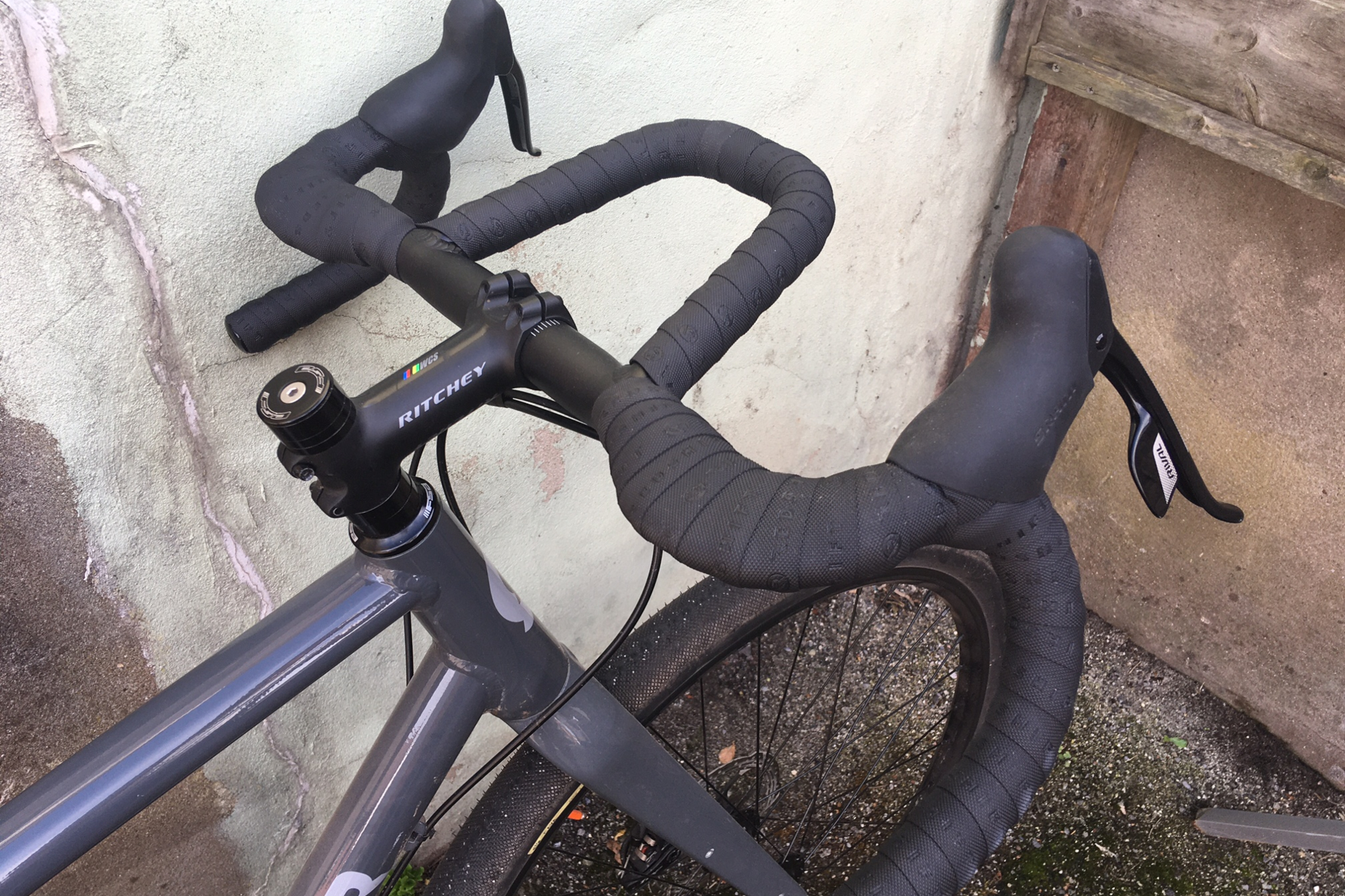
The shallow drop made the move from the tops of the bars to the drops a cinch. Once there I had two distinct positions; either tucked up in the curve of the drops where you can reach the levers or right out on the extremities, which gave me some added control on steep woodland descents.
The endurance loop allowed for yet more positions but it’s here that I ceased to be so comfortable. In fact I couldn’t really find a position to settle in at all. The loop wasn’t long enough to allow me to properly stretch out like you would using tri-bar extensions. Essentially I found myself caught between two positions, neither sat upright on the tops or fully extended out in front of them.
I did manage to do my best impersonation of WorldTour rider Tim Wellens and his now UCI-outlawed ‘puppy paws’ position, with my hand draped over the front of the loop. However my aging back isn’t overly flexible and I quickly returned to familiar, and far more comfortable, territory on the hoods and the tops of the bars.
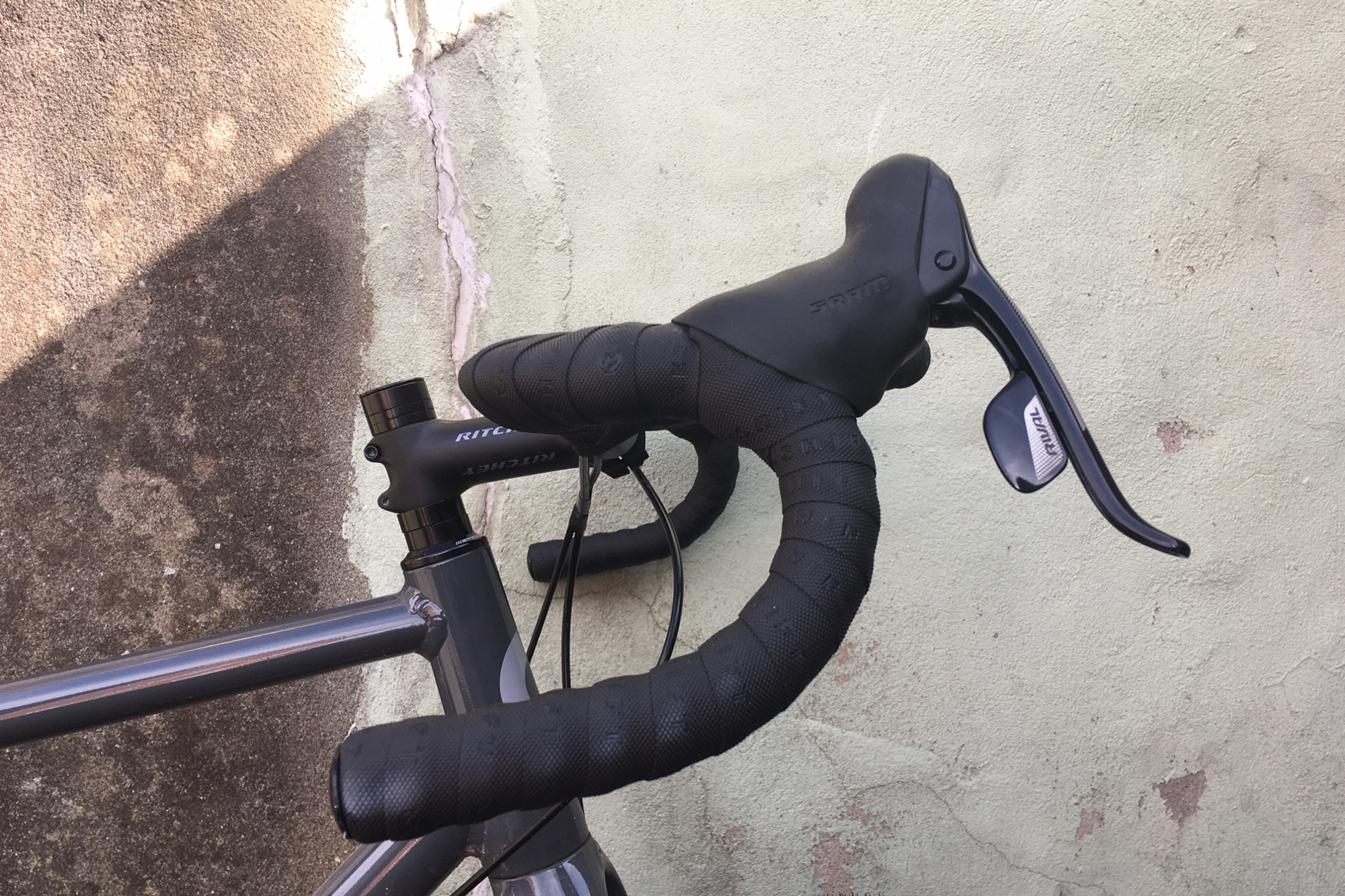
All this left me feeling that, for my riding at least, the loop was overkill. If I was buying a pair of Kitchen Sink bars I’d save myself a few grams and opt for the loop-less option. However, I wouldn’t want to dismiss the loop entirely. Other riders may be able to find a comfortable position here, giving them yet another hand position or two which can prove invaluable over very long distances. The extra mounting points would also come in handy on such trips.
Redshift Kitchen Sink bars - value and conclusion
The Redshift Kitchen Sink bars retail for £129.99 / US$139.99, with the top Cruise Control grips an additional £24.99 / US$24.99. This is certainly at the high end of pricing for aluminium gravel bars. For comparison, Ritchey's WCS Beacon bars, which have 36 degree of flare and are made using triple-butted 7050 alloy, have a RRP of £99.99 / US$109.99, while PRO's Discover Flared bars come in a 30 degree flare option and have price tag of £44.99.
Loop aside the bars performed admirably. They’re clearly a considered design with the vast majority of the hand positions feeling entirely natural. Some bars take a while to get used to. They didn’t. As for the extra weight, I can’t say I really noticed it. These are bars designed for the long haul, with a premium on comfort. As I happily rolled along on road and off, had I not known, I’d never have guessed that they weigh a couple of hundred grams more than my usual gravel bars.
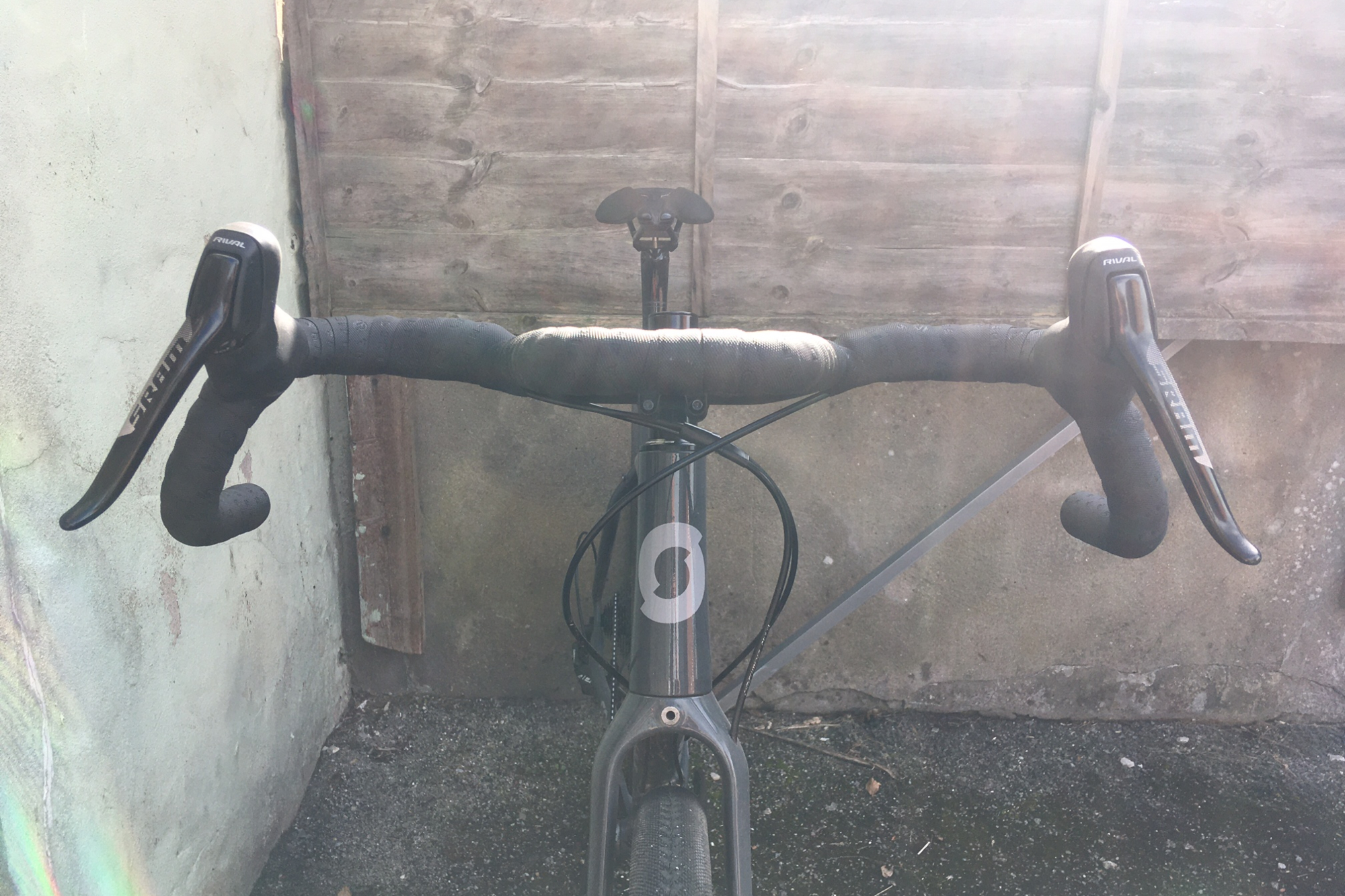
Redshift Kitchen Sink gravel bars: Specs
- Weight: 480g (44cm size with loop, actual)
- Sizes: 44, 47, 50. 53cm
- Clamp diam: 31.8mm
- Rise: 20mm
- Drop: 110mm
- Flare: 25 degrees
- Contact: redshiftsports.com
Luke Friend has worked as a writer, editor and copywriter for over twenty five years. Across books, magazines and websites, he's covered a broad range of topics for a range of clients including Major League Baseball, Golf Digest, the National Trust and the NHS. He has an MA in Professional Writing from Falmouth University and is a qualified bicycle mechanic. He has been a cycling enthusiast from an early age, partly due to watching the Tour de France on TV. He's a keen follower of bike racing to this day as well as a regular road and gravel rider.